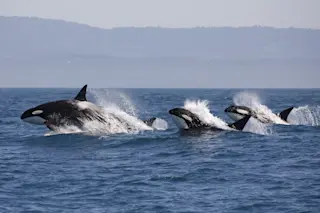Off the western coast of Europe – running from Portugal, Spain and France – orcas are ramming into boats. Over the past few years, this activity has led to temporary bans on small boating activities in some areas. But scientists are puzzled as to why the killer whales are doing this in the first place.
According to reports, the orcas ram small boats repeatedly, and almost always go for the rudder – snapping, cracking or otherwise breaking it. Some have to tow the ships into the harbor because the damage is so severe, and a few ships have even sunk.
“At this time, there may be at least 15 orcas, from six different groups, which are actively participating, or [acting] as observers,” Alfredo López explains, a biologist from the University of Santiago and a member of the Grupo de trabajo Orca Atlántica, an organization that is monitoring the situation.
Some ...















